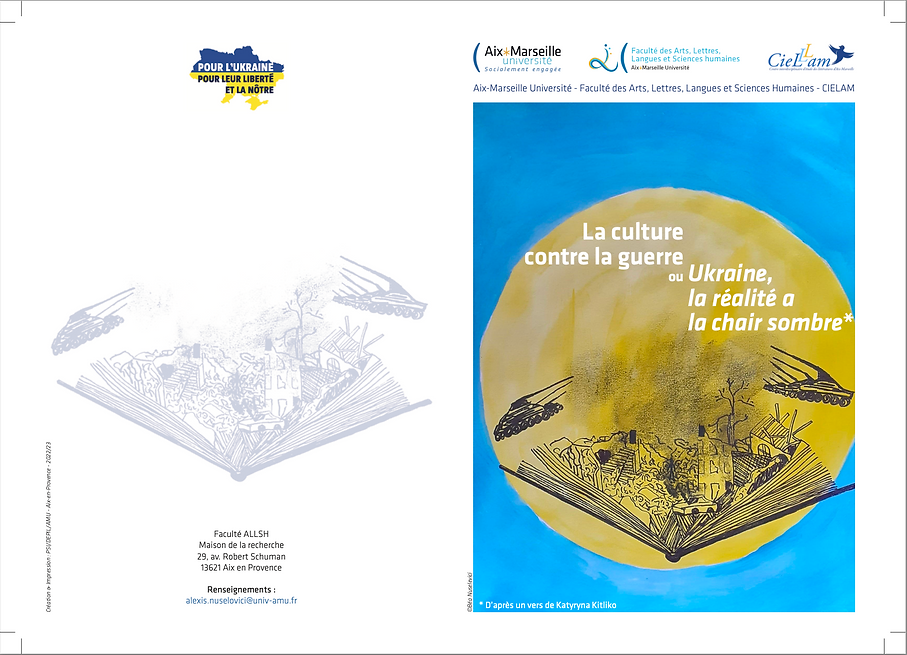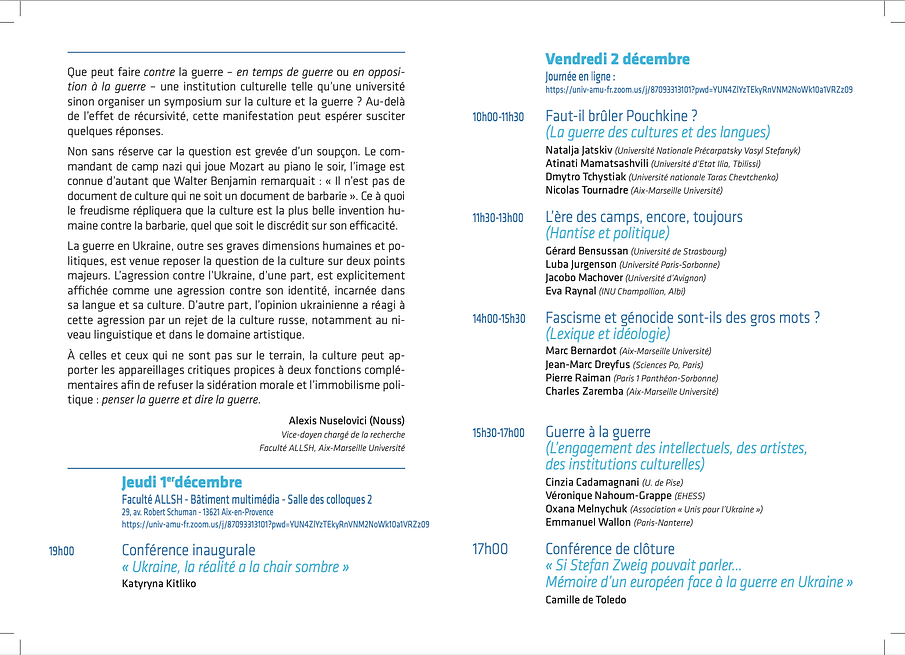Culture Against War,
or Ukraine, reality has dark flesh
What can a cultural institution such as a university do against war – in wartime or in opposition to war – if not organize a symposium on culture and war? Beyond the effect of recursion, this event can hope to elicit some responses. Not without reservation because the question is burdened with a suspicion. The Nazi camp commander who plays Mozart on the piano in the evening, the image is well known, especially since Walter Benjamin remarked: “There is no document of culture that is not a document of barbarism”. To which Freudianism will reply that culture is the most beautiful human invention against barbarism, whatever the discredit on its effectiveness. The war in Ukraine, in addition to its serious human and political dimensions, came to restate the question of culture on two major points. The aggression against Ukraine, on the one hand, is explicitly displayed as an aggression against its identity, embodied in its language and culture. On the other hand, Ukrainian public opinion has reacted to this aggression by rejecting Russian culture, particularly at the linguistic level and in the artistic field. For those who are not in the field, culture can provide the critical tools conducive to two complementary functions in order to refuse moral stupefaction and political immobility: to think about war and to say war.


Culture against war or Ukraine, dark-fleshed reality*,*from a quote by Kateryna Kalytko
Inaugural conference:Kateryna Kalytko with Irina Dmytrychyn (INALCO)
Are fascism and genocide swear words?(Lexicon and ideology)
Jean-Marc Dreyfus (Sciences Po, Paris)
Pierre Raiman (Paris 1 Pantheon-Sorbonne)
Charles Zaremba (Aix-Marseille University)
War on war (The commitment of intellectuals, artists, institutionscultural)
Cinzia Cadamagnani (U. of Pisa)
Véronique Nahoum-Grappe (EHESS)
Oxana Melnychuk (“United for Ukraine” Association)
Emmanuel Wallon (Paris-Nanterre)
Closing conferenceure
“If Stefan Zweig could speak… Memory of a European faced with the war in Ukraine” by Camille de Toledo
Alexis Nuselovici (Nouss) Vice-Dean in charge of research ALLSH Faculty, Aix-Marseille University
Should Pushkin be burned? (The war of cultures and languages)Natalja Jatskiv (Precarpatsky Vasyl Stefanyk National University)
A tinati Mamatsashvili (Ilia State University, Tbilisi)
Dmytro Tchystyak (Taras Shevchenko National University)
Nicolas Tournadre (Aix-Marseille University)
The era of the camps, again, always (Haunting and politics)
Gérard Bensussan (University of Strasbourg)
Luba Jurgenson (Paris-Sorbonne University)
Jacobo Machover (University of Avignon)
Eva Raynal (INU Champollion, Albi)
